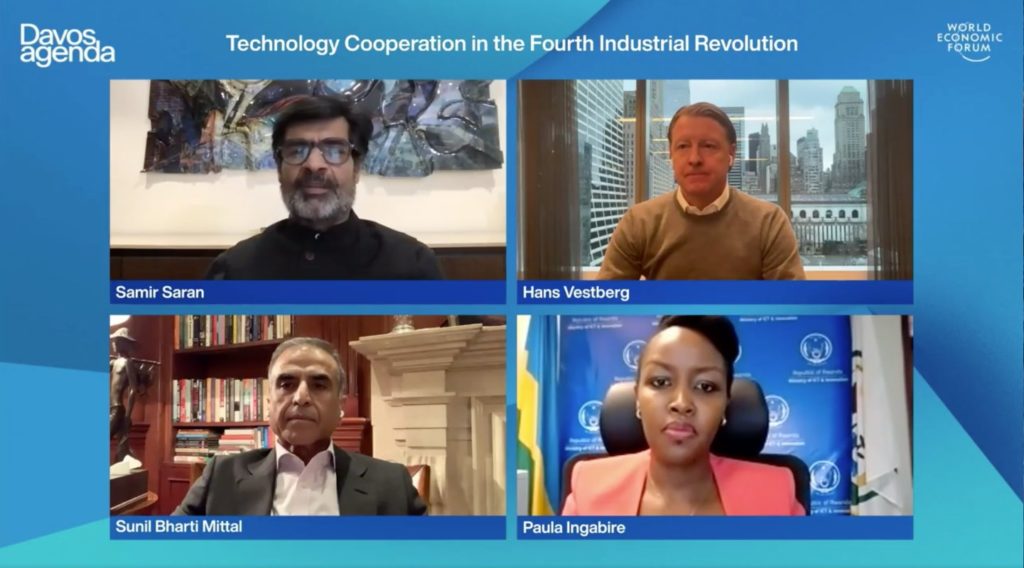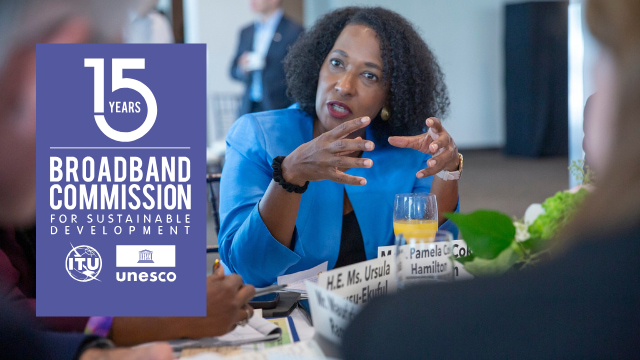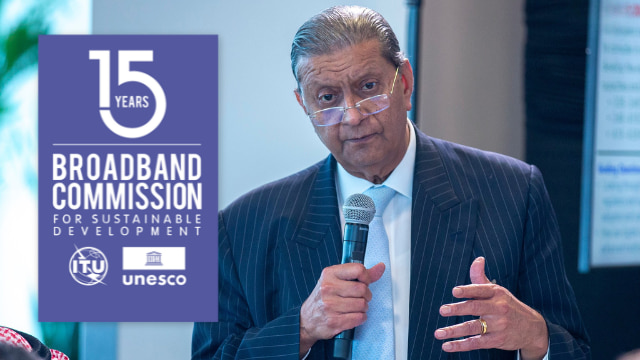For experts taking part in Davos Agenda online sessions this week, the world’s push for inclusive and sustainable social and economic development in the wake of COVID-19 hinges on intensifying cooperation to boost connectivity.
The United Nations Secretary General’s roadmap on digital cooperation defines it as “the ways we work together to address the social, ethical, legal and economic impact of digital technologies in order to maximise their benefits and minimise their harm.”
The pandemic has once more delayed the gathering of global leaders in Davos, Switzerland, for the annual meeting of World Economic Forum (WEF). With the main event on hold until June, the Forum is hosting a series of virtual sessions aiming to outline global imperatives of the year ahead, from post-COVID recovery to addressing the climate emergency.
“Making technology available to all has to be a global imperative,” said Samir Saran of the Observer Research Federation, who moderated a panel during this week’s event. “[Technology] cooperation becomes crucial to offer access at appropriate price points to many who are underserved.”
Connectivity: A human right
Emerging economies across the Global South are experiencing the most comprehensive transformations amid the Fourth Industrial Revolution, or 4IR. Saran cited the global vaccination campaign as an example of the need for partnerships to reach the whole world and ensure no one is left behind.
“Trust in technology is vital,” he added. “The benefits of innovation are lost without it.”
Despite over 80 per cent of the world’s population now enjoying access to broadband coverage, around 3 billion people are still unconnected to the Internet, noted Verizon CEO and Broadband Commissioner Hans Vestberg.
Grappling with the nuts and bolts of connectivity will therefore be crucial to meet the whole world’s growth aspirations and leave no one behind.
“It shouldn’t matter where you’re born, where you live, or where you come from – everyone should have the same opportunities. That means bridging the tech gap,” said Vestberg.
“This is a moment where infrastructure is so crucial. Being connected is a human right.”
LEO for the last billion
According to fellow panellist and Broadband Commissioner Sunil Bharti Mittal of Bharti Enterprises, the network infrastructure underpinning 4IR is the only way to alleviate poverty and support all 17 of the UN Sustainable Development Goals by 2030.
Low-Earth orbit (LEO) satellite connectivity will be key to connect people in the poorest and most remote communities, what Mittal calls the “last billion”, impossible to reach by fibre broadband or traditional radio networks. In technical terms, global connectivity is now within reach.
“Months from now we will be able to cover every square inch of the world,” Mittal added.
Nevertheless, connecting the 2.9 billion people, whether via LEO satellites or by other means, will come at a cost. “USD 425 billion is required in the next nine years to provide ubiquitous coverage,” he estimated.
Investment as business strategy
Affordability represents another key hurdle calling for large-scale financing to overcome.
“A large-scale international effort is required – on the scale of nuclear disarmament,” suggested Mittal.
While governments and regulators have a role to play, OTT (over-the-top) players and digital platforms need to take responsibility and contribute to rolling out new network infrastructure too, he said.
In the US market, where Verizon does most of its business, the company plans to invest USD 3 billion in education over the next 3 years.
“This is not philanthropy, it’s a key part of our business strategy,” said Vestberg.
Agile governance
The Fourth Industrial Revolution offers huge opportunities for developing countries “where you don’t have legacy infrastructure,” said Paula Ingabire, Rwanda’s Minister of Information Communication Technology and Innovation and focal point to the Broadband Commission. To illustrate how digital cooperation can help deploy new and emerging technologies on the ground, Ingabire shared an instructive use case.
Together with the World Economic Forum, the government of Rwanda developed performance-based regulations for unmanned aerial vehicles, or drones.
“Instead of remaining in wait-and-see mode, waiting until regulation is globally embraced, we focused on how to address imminent challenges like healthcare,” she explained.
Drones seemed like a good solution to deliver timely medical products to remote hospitals, she explained. This type of digital cooperation enabled Rwanda’s government to create regulations agile enough to adapt to changing needs. But the same “could apply to other 4IR technologies,” such as artificial intelligence, the Internet of Things, and blockchain, said Ingabire.
To advance digital agendas in the Global South and beyond, governments must leverage cooperation financed by a “new war chest” aimed at connecting every last human being on the planet, concluded session moderator Saran.
The private sector, for its part, he added, must also create a multi-stakeholder, multi-layered framework, building responsibility into business models to serve both the bottom line and the greater social good.





